Israel-Hamas War: What happened on Day 112?
ICJ asks Israel to prevent genocide, doesn't order end to Gaza war • Netanyahu: Israel to defend itself from Hamas, genocide claim outrageous
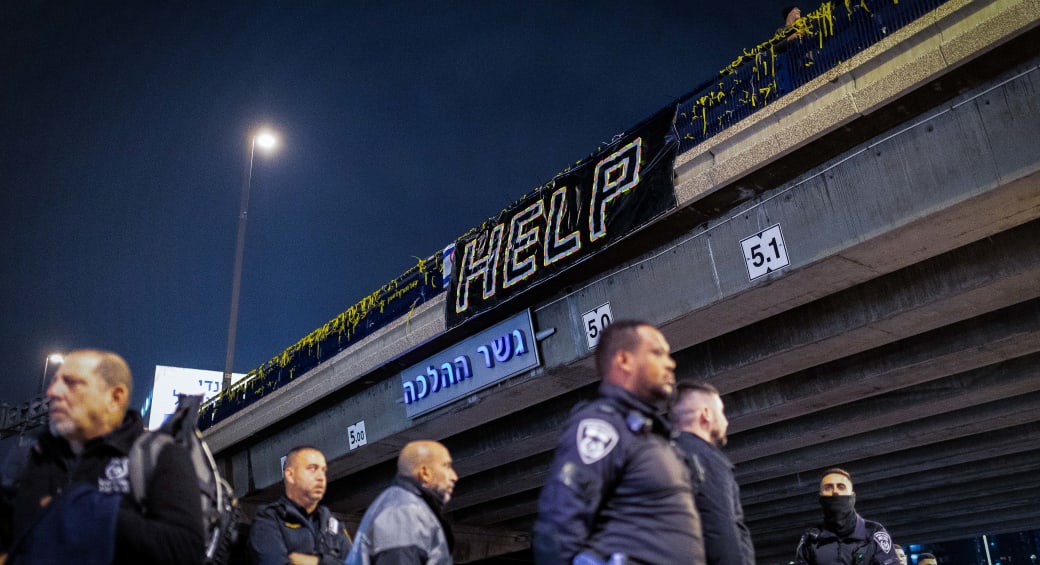
UN Palestinian refugee agency investigates staff suspected of role in Israel attacks
The United Nations Palestinian agency (UNRWA) said on Friday it had opened a probe into the alleged involvement of several of its employees in the Oct. 7 attacks in southern Israel by Hamas, and that it had severed ties with these staff members.
"The Israeli authorities have provided UNRWA with information about the alleged involvement of several UNRWA employees in the horrific attacks on Israel on October 7," said Philippe Lazzarini, UNRWA Commissioner-General.
"To protect the agency's ability to deliver humanitarian assistance, I have taken the decision to immediately terminate the contracts of these staff members and launch an investigation in order to establish the truth without delay."
Go to the full article >>South Africa welcomes World Court ruling against Israel
South Africa hailed what it called a "decisive victory" for international rule of law on Friday, after the International Court of Justice (ICJ) ruled in favor of its request to impose emergency measures against Israel over its military operations in Gaza.
The ICJ decision is an important development that contributes to isolating Israel and exposing its crimes in Gaza, senior Hamas official Sami Abu Zuhri told Reuters on Friday.
"We call for forcing the occupation to implement the court's decisions," he added.
Go to the full article >>ICJ asks Israel to prevent genocide, doesn't order end to Gaza war
The mere issuing of a provisional order is viewed as a harsh diplomatic blow for Israel, one that gives South Africa’s genocide claim tacit legitimacy.
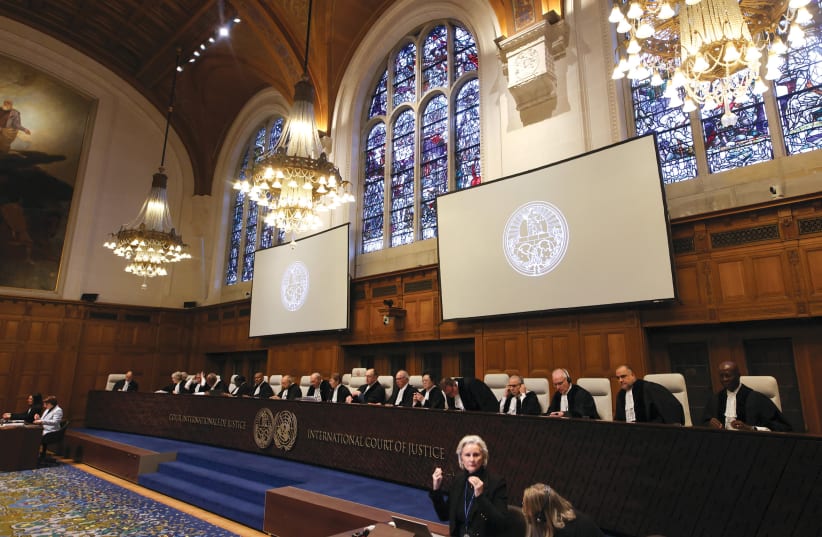
The International Court of Justice (ICJ) on Friday issued a provisional order that Israel must refrain from acts that could possibly lead to genocide but fell short of demanding that it stop the war.
It called on Israel to six provisional actions, including taking every possible step to stop the killing, injuring, and afflicting unlivable conditions on Palestinians in Gaza.
Israel must take all measures to punish any direct incitement to genocide against Palestinians as well as assure the prevision of basic services and humanitarian aid. Israel must present to the Court a report within a month on the measures it has taken.
Still, the mere issuing of a provisional order is viewed as a harsh diplomatic blow for Israel, one that gives South Africa’s genocide claim tacit legitimacy.
The ruling is legally binding and can not be appealed, but is difficult to enforce.
It represents the first phase of a protracted legal process triggered by South Africa's December 29 written ICJ submission accusing Israel of genocidal acts in the Gaza Strip and illegal displacement of populations.
Following the complaint, the ICJ at The Hague held a hearing on January 11 and 12 to allow both Israel and South Africa to present their cases.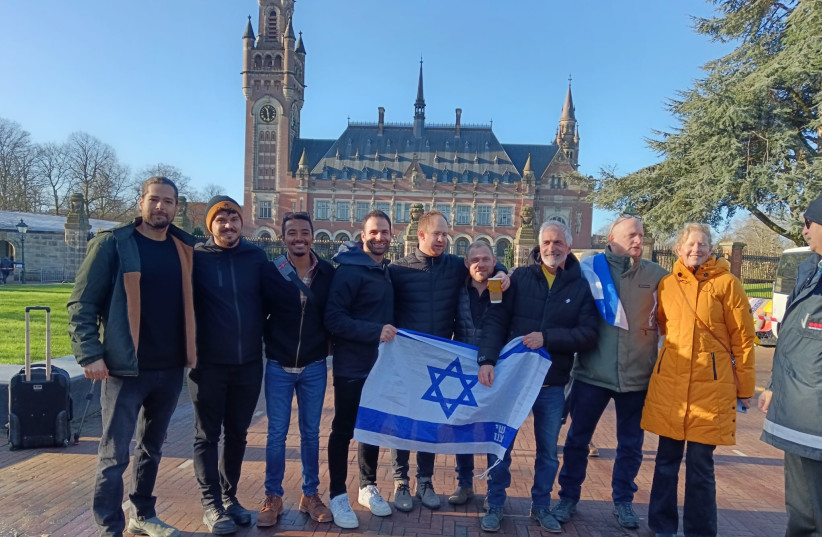
After ruling on South Africa’s request for provisional measures, the ICJ will now start deliberating on the general South African genocide complaint. Deliberations are expected to take several months, perhaps even two or three years.
Dozens of journalists arrived at the Hague for the ruling, with several TV crews standing outside the court. Hundreds of anti-Israeli activists also arrived at the small plaza in front of the building. Separated by fences and local police, between 100 and 150 people, including Israelis, Dutch Jews, and even regular Dutch citizens, came to support Israel.
The ruling was read by the President of the ICJ Joan Donoghue, who started with the motivations for the decision adopted by the panel of 17 judges and concluded with the court’s ruling. After that, the court’s clerk read a summary of the decision in French.
South Africa's genocide case
The genocide accusation marks the first time that a state party to the court has submitted a claim against Israel at the ICJ.
The ICJ, however, has issued a non-legally binding advisory opinion against Israel at the request of the United Nations General Assembly in 2004 and is now in the process of authoring a second one.
The legal weight of this case is different both because binding rulings are at stake and because South Africa and Israel are signatories to the 1948 Convention against Genocide.
This signature allows South Africa to file a claim against the Jewish State and obligates Israel to adhere to the ICJ’s dictates on issues relating to genocide.
The fixed panel of the ICJ was joined by two ad-hoc justices appointed by Israel and South Africa. Israel picked former Supreme Court President Aharon Barak as its representative on the panel. Also, Israel chose international law specialist British Malcolm Shaw to lead its legal team.
Similarly to the January 11 and 12 hearings, activists on both sides have been demonstrating since Friday morning outside the Court in the Hague. A delegation of IDF reserve soldiers who had fought in Gaza recently also arrived at the place, calling the South African complaint false, biased, and unfounded.
Go to the full article >>WATCH: ICJ rules on South Africa charge against Israel
IDF announces name of fallen soldier

IDF Sgt-Maj (res.), Eliran Yeger, 36, from Tel Aviv, a fighter in the 8170 Engineering Battalion, Givati Brigade, was killed in battle in the south of the Gaza Strip, the IDF announced on Friday.
Go to the full article >>Succession: Who will be Israel's new leaders when the Hamas war ends?
Protests are intensifying and politicians are plotting. With heat rising, the ‘Magazine’ presents scenarios for the political day after.
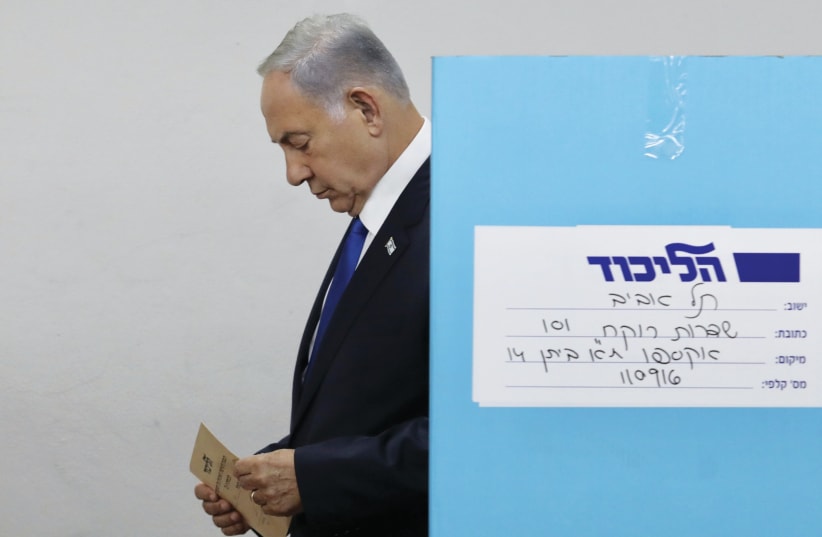
“The prime minister is emptying of content the concept of responsibility. The people of Israel know today that they are led by a prime minister who is not qualified or fit to lead them.
“The claim that the person who made the mistakes should be the one to fix them is fundamentally crazy. Would you trust a surgeon who failed? Or a bus driver who caused a fatal accident? But this government is avoiding the will of the people and its pain.”
These were among the many comments made in 2008 by then-opposition leader Benjamin Netanyahu directed at then-prime minister Ehud Olmert, following the publication of the Winograd Report on the Second Lebanon War. Netanyahu often made such remarks in the years after that war.
Although an official inquiry into the war that erupted in Israel on October 7 has yet to begin, the catastrophe on that fateful day, in which approximately 1,200 Israelis were massacred, speaks for itself.
The prime minister, however, has not yet assumed responsibility for the events of that day, does not appear close to stepping down, and even said in a press conference on December 30 that he would not resign, as “the only thing I intend to get rid of is Hamas.”
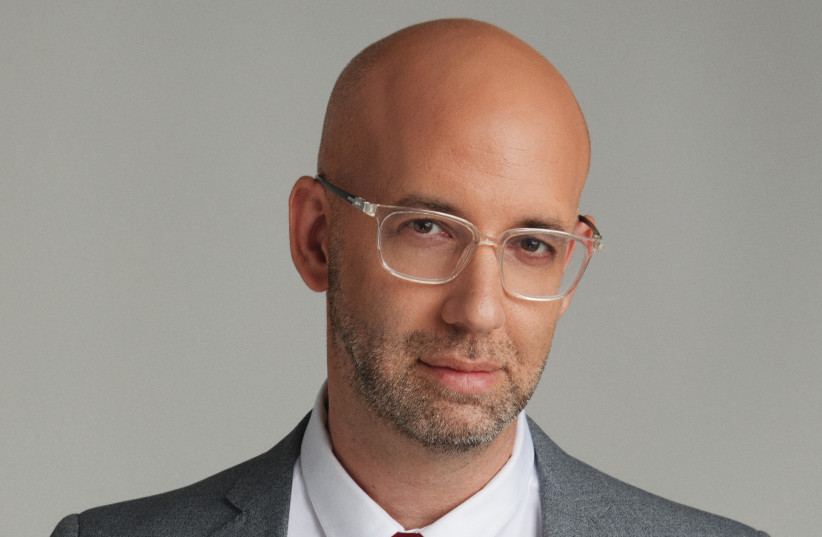
But despite Netanyahu’s confidence, Israel seems to be nearing a tipping point.
A growing number of Israelis are joining rallies on Saturday nights and protesting opposite the IDF’s Kirya headquarters in Tel Aviv and the Knesset in Jerusalem. The messages at these rallies have begun to shift from calling on the government to do more to release 136 hostages remaining in Hamas captivity, to calling for a new government entirely. Some 53% of respondents in a Channel 13 poll conducted this week believed Netanyahu’s main considerations in his wartime decision-making to be personal interests, compared to just 33% who thought he had the country’s best interest at heart.
Discontent is also augmenting within the coalition. An increasing number of coalition MKs, especially from the far-Right, believe that the prime minister is caving in to US pressure and will agree to end the war to free the hostages even before Hamas is defeated. A petition circulated among the coalition’s Knesset members this week, requesting signatures on a document calling on the prime minister to follow through on his promise to topple Hamas.
The petition has yet to be published, but National Security Minister and Otzma Yehudit Chairman MK Itamar Ben-Gvir put it succinctly in a post on X: “No war = no government.”
Many of the Knesset members in the coalition who spoke to the Magazine over the past two weeks agreed that this tipping point – which one even called an “Archimedean point” – is most likely to occur when ministers without portfolio and war cabinet members Benny Gantz and Gadi Eisenkot announce that they are leaving the government, which they joined on October 11, four days after the outbreak of the war.
That moment seems to be drawing closer.
Eisenkot said, in a widely watched interview on January 18, that Israeli leadership must earn anew the trust of the public via an election. Although Eisenkot did not say when he thought this should happen, he harshly criticized Netanyahu, saying that Israel’s leader was not telling the people the truth about Israel’s capability to achieve both of the war’s stated goals in the short term – toppling Hamas and freeing the Israeli hostages.
A spokesperson for Gantz explained that Gantz and Eisenkot would remain in the war cabinet as long as they felt that they were influencing its decision-making. One major decision is looming: whether or not to enter a full-out war with Hezbollah on Israel’s northern border. Gantz and Eisenkot want to have a say in this decision and want to remain at the forefront if such a war breaks out. However, if the two conclude that Netanyahu is incessantly dragging his feet or if Israel and Lebanon solve the northern conflict via diplomacy, they will leave the government soon after, the spokesperson said.
The two would be wise to do so as soon as possible, as according to the Channel 13 poll, not only is their party polling far ahead of the rest of the field – 37 seats under Gantz, 39 under Eisenkot, with the Likud in second place with 16 – but Gantz and Eisenkot are far ahead of Netanyahu in head-to-head matchups for suitability to serve as prime minister, with Gantz at 48% vs Netanyahu’s 30%, and Eisenkot at 45% vs Netanyahu’s 32%.
With near consensus among analysts and politicians that an election is inevitable, Netanyahu is in a bind. His Likud is polling at half of its current 32, and Likud Knesset members are beginning to understand that with Netanyahu at the helm, in the next election the Likud is likely to be removed from power.
Moshe Klughaft, former strategic adviser to prime ministers Netanyahu and Bennett and co-founder of ActAi, which deals, among others, with the personalization of election campaigns around the world, estimates that Netanyahu will announce a date for an election when he sees that his government is teetering due to pressure from parties that are gaining in the polls – Gantz on one hand, and Ben-Gvir on the other. The move will be supported by Likud members who realize that if they stay put, they will likely be out of a job and will attempt to stay on the wheel by switching sides.
With this current situation in mind, there are four groups that are likely to play a major part in the next election.
The Netanyahu successors
The Channel 13 poll found that if the Likud were to run in an election headed by Economy Minister Nir Barkat – one of the leading candidates to replace Netanyahu as party head – the Likud would get 21 seats, five more than under Netanyahu. This is a rise of over 30%, some 200,000 votes.
Barkat’s main competitors for the title of prime minister are Foreign Minister Israel Katz, Defense Minister Yoav Gallant, and Knesset Foreign Affairs and Defense Committee (FADC) Chairman MK Yuli Edelstein.
The battle between these figures is ongoing beneath the surface and is partly the reason Netanyahu is still in power.
The prime minister can theoretically be removed from power via a parliamentary procedure called “constructive no-confidence,” without the nation having to head to an election during wartime.
In a constructive no-confidence vote, a majority of the Knesset’s 120 members vote to institute a new government. National Unity and opposition parties Yesh Atid and Yisrael Beytenu would presumably support such a move, but their combined 42 seats would require at least 19 MKs from the Likud. Since the Likud has failed to rally behind a single candidate, the votes don’t add up. However, even if one of the potential successors managed to create a significant following within the party, 19 MKs is still unrealistically high, a source explained.
The constructive no-confidence vote is Gallant’s preferred option. Gallant joined politics as part of Moshe Kahlon’s Kulanu Party and is somewhat of an outsider in the Likud. It would be difficult to win the party lead in a primary election against the likes of Katz, a long-time Likud member and current leader of the party’s Secretariat, one of its most important institutions.
Gallant earned respect from the opposition and some members of the Likud when, in late March last year, he became the first minister to speak publicly against the Likud’s proposed reforms of Israel’s judicial system, warning that the internal divisiveness caused by the reforms would harm Israel’s national security. Edelstein, for example, supported Gallant’s actions in March.
According to a source, Edelstein could potentially support Gallant in a move to replace Netanyahu via constructive no-confidence. The Gallant option also makes sense as a wartime appointment, as the defense minister is already part of the war cabinet and is up to speed on the war’s progress. A joint Edelstein-Gallant push leaves the constructive no-confidence option alive, but the two are still unlikely to garner enough votes from within the Likud to make the move work.
The more likely scenario is an election – and therefore a primary battle for the leadership of the party, which could affect the Likud in unexpected ways. On one hand, a hard-fought primary battle could revitalize the party and re-energize voters, but on the other, create infighting that could harm the party in the general election.
The new Right
The second focus group is a list of figures on the Right who would aim to capitalize on the Likud’s possible implosion and perhaps even assist in bringing it about. These figures include former prime minister Naftali Bennett; former justice minister and interior minister Ayelet Shaked; former communications minister Yoaz Hendel; former Mossad chief Yossi Cohen; and current Minister-without-portfolio MK Gideon Sa’ar.
Sa’ar’s New Hope faction ran in the past election under Gantz’s umbrella alongside Gantz’s Blue and White faction. But Sa’ar intends to break away from Gantz in the coming election, according to a source. Sa’ar’s party is farther to the Right than Gantz on matters of national security and, with this being the focal point of the next election, the two factions are no longer compatible. Sa’ar is likely to make an independent decision on whether or not to leave the government and could thus affect the timing of the election itself.
Still, assuming that Sa’ar will not back Netanyahu eternally, he and other Right-wing figures above will fill a gaping electoral hole between Gantz in the center and the Likud on the Right.
“In the previous election, the camp deemed the ‘statesmanlike Right’ barely even passed the electoral threshold; it was sort of a rumor whose components needed to be found under a magnifying glass in Givat Shmuel and Modi’in. This time, they have become the center of the election – from the kid who is bullied to the most popular in class,” Klughaft says.
These days, this bloc is worth approximately 20 seats, which currently support Gantz but will move away from him once a worthy candidate farther to the Right comes forward, Klughaft says.
This new Right-wing camp will differentiate itself from the Likud in three central ways: It will not support Netanyahu; it does not bear direct responsibility for the October 7 catastrophe; and its style will be more respectful and less tempestuous, Klughaft adds.
He believes that these figures will eventually coalesce into one large party, but this will happen at a relatively late stage and just before the deadline for parties to hand in their final lists.
The group has not begun to politically organize, however; and while its members are fielding offers and speaking among themselves, they are still focused on the war effort. Cohen, specifically, has not yet decided whether he is interested in joining politics, and there is a fair chance that he will decide against it.
The new Left
The parties on the Left of Israel’s political spectrum, Labor and Meretz, infamously failed to join together ahead of the previous election, due mainly to Labor leader MK Merav Michaeli’s refusal to do so. Meretz ended up falling just short of the electoral threshold and its votes were wasted, which greatly contributed to Netanyahu’s victory.
However, with Labor falling well below the threshold in every poll and Merav Michaeli announcing that she would not run for the party leadership in the next election, a merger between the two parties is nearly assured and could end up being larger than the sum of its parts by attracting other groups into the new camp.
This was the platform of former general and Meretz MK Yair Golan ahead of the previous election in his race against Zehava Galon for the party’s leadership. Golan acted heroically on Oct. 7 and saved the lives of citizens in the Gaza border area, which drew widespread respect and contributed to his emergence as a leading candidate for the new camp.
Current Labor MKs Gilad Kariv and Efrat Rayten intend to run for head of Labor and eventually figure into the leadership of the camp as a whole. Another figure who said he was considering a run to lead Labor is former public security minister and Labor MK Omer Bar-Lev. A Channel 14 report this week even named Eisenkot as a possible leader of the Left-wing camp – a proposal that Michaeli publicly supported.
Other than Labor and Meretz, a formidable group to join this camp could be the Kaplan Force – a coalition of protest groups that spearheaded the opposition to the judicial reforms. Two figures especially stood out as potential candidates – Prof. Shikma Bressler, who led many of the mass highly visible protests against the reforms; and Moshe Radman, head of the hi-tech protest group. But, according to Klughaft, the move from mass protests, which benefit from diversification and decentralization, to centralized and institutionalized political parties is difficult, and the protest leaders may benefit from remaining outside of politics and instead providing logistical support to the current opposition parties.
In addition, the Left-wing camp will find it more difficult to gel than the Right-wing camp, since each one of its components is unique, Klughaft says.
“I think that what defines the engineering of this group is the time and complexity that is necessary to form it,” Klughaft says. “Each component sees itself as unique, and the tendency towards pluralization is very strong: Labor with its history; Meretz with its well-defined ideology; the Kaplan activists with their effectiveness and activeness; and Yair Golan as a security figure, who is pretty isolated in the Left-wing arena at this point,” Klughaft says.
“We should expect a long and tiresome process here, and mostly a process whose purpose is, rather than bringing votes, to ensure that this time votes are not wasted.” Either way, Klughaft says, the character of the next government will be decided by which side manages to pull voters across the political divide. This divide runs between Gantz and the “new-Right” camp – and the Left-wing edge of the spectrum is therefore less important.
Grassroots
The final focus group ahead of the election, or rather a collection of groups, are those that could grow from the bottom up. Two groups that stand out in this regard are reservists and young leaders.
Reservists are playing a central role in the war in Gaza. The same occurred during the Yom Kippur War in 1973, and reservists were the ones then who spearheaded the opposition to those responsible for the setback at the start of the war.
Klughaft believes that the “reservist” brand will be a hot commodity in the next election, but that rather than a political party of reservists, each party will attempt to draft prominent reservists into their ranks. For example, some members of Achim Laneshek – the reservist group that stood out in its opposition to the judicial reform, but since the war’s outbreak has dedicated itself completely to the war effort, especially in terms of care for evacuees from the Gaza border area and the North – have already been approached by political parties, according to the group’s spokesperson.
A different grassroots reservist group calling itself Reservists until Victory formed in recent weeks in order to apply pressure on the government not to let up military pressure in the Gaza Strip. The group set up tents opposite the Kirya in Tel Aviv; outside of the Prime Minister’s Office in Jerusalem; and at the site of the October 7 massacre at the Supernova festival near Re’im. But it is too early to talk politics, according to one of the groups founders, Gilad Ach, as many of its supporters are still fighting in Gaza.
Unlike the reservists, Klughaft believes that the other grassroots group that could organize into a political party are young leaders, who could focus on exemplary public service.
This would be a party of “go-getters,” Klughaft says, comprised of young leaders from local authorities, businesspeople who leave the comfort of private business and enter public service, and others, who promise “worthy appointments in public service and an end to a policy of appointing cronies.”
“This would be a party that would educate the public that professionalism precedes ideology and that professional management saves lives,” Klughaft says, adding that this group could run government ministries like start-ups, where human capital precedes the concept, as the “ability to carry out policy is more important than the diplomatic-security plans that in any case do not differ much from one to the other.”
This ticket is still up for grabs, Klughaft says, and its message could resonate widely after the trauma of October 7 and its aftermath.
Go to the full article >>Jewish Israelis believe IDF is using appropriate force in Gaza, Arab Israelis broadly do not - poll
A vast majority of Jewish Israelis believe that the IDF is using an appropriate amount or not enough force, while half of Arab Israelis say it's using too much.
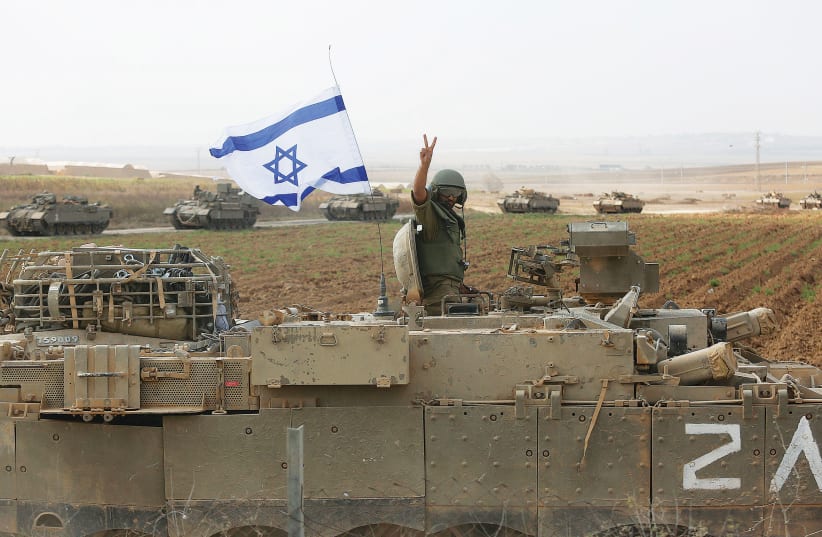
A poll conducted in the second week of January by researchers at Tel Aviv University found that Jewish Israelis believe the IDF is using an appropriate amount or not enough force in Gaza, while Arab Israelis are broadly skeptical of the IDF’s use of force and most believe the casualty numbers on the Palestinian side are unjustified.
As for the goals of the war, Jewish Israelis are split on whether the government’s aims are clear, while only about a fifth of Arab respondents believe they are. On the question of what the government ought to prioritize, destroying Hamas or returning the hostages, Jewish Israelis are almost evenly split, with very few undecided; a large majority of Arab Israelis (66%) say that returning the hostages should be the primary objective, with about a fifth unsure, and few (11%) prioritizing the destruction of Hamas.
To address the conflict at large, a large majority (66%) of Jewish Israelis oppose the creation of a Palestinian state, while the same share (66%) of Arab Israelis support it. Arab Israelis are more supportive of negotiating with the Palestinian Authority but are split on whether it is likely to bring about peace.
A notable difference across topics was that most Jewish Israelis were relatively confident in their opinions, whereas Arab Israelis were more likely to say they don’t know. About 10-30% of Arab respondents to any given question provided an agnostic answer, compared to a range of about 5-15% among Jews.
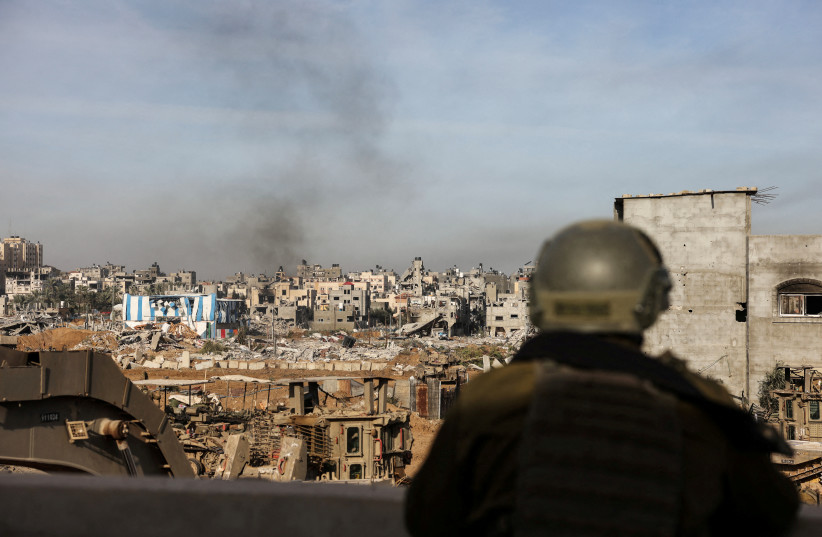
Israelis believe war is being waged appropriately, Arab Israelis do not
A vast majority of Jewish Israelis believe that, in light of the war’s aims and conditions, the number of casualties on the Palestinian side has been justified, and most believe the number of casualties on the Israeli side has been unjustified, with few saying (13%) saying they don’t know.
About half of Arab Israeli respondents, meanwhile, believe that the IDF is using too much force, hardly any believe it is using too little, and only a fifth believe it is using an appropriate amount, with an equal amount responding that they don’t know.
Most Arab Israelis believe the number of casualties on the Palestinian side has been unjustified, including a large minority who say it has been “completely unjustified,” while about a third say they don’t know. Most Arab Israelis believe the number of casualties on the Israeli side has been unjustified, and about a third say they don’t know.
Jewish Israelis are split on the question of whether the government’s objectives are clear, while only about a fifth of Arab voters believe the objectives are clear, and a third say the objectives are not clear at all. Among coalition voters, however, a clear majority now believe that the government does have clear war aims– a change from November, when only a very slim majority said so.
A vast majority of Jews support full Israeli security control of Gaza after the war, with almost all of the remaining respondents supporting “control of international and regional forces.” There is no consensus among Arabs on that question, but a plurality support “international and regional forces,” about a third don’t know, and about a fifth support PA control. Few (7%) support full Israeli control.
From a political-civilian standpoint, a roughly equal share of Arab Israelis say they support an international coalition, that they support PA control, or that they don’t know, while most Jewish Israelis support either international control (48%) or full Israeli control (38%), and few saying that they don’t know or that they support PA control.
Jewish Israelis are split on whether the end of the war in Gaza will bring about a long-term period of calm there, whereas only a fifth of Arab Israelis believe that it will.
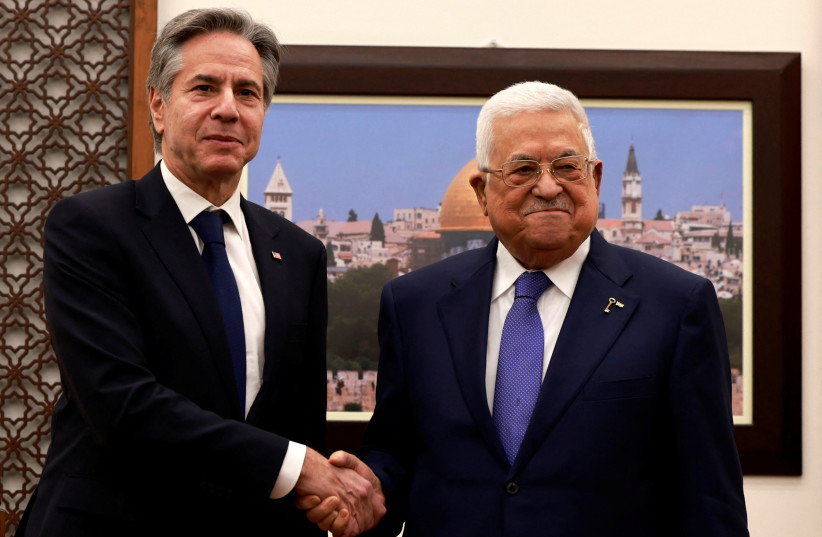
Arab Israelis support a Palestinian state, Jewish Israelis do not
With respect to the conflict at large, Arab respondents broadly support a two-state solution, while Jewish respondents broadly do not. A vast majority of respondents in both groups believe that continuing the conflict harms Israel, although a small minority (13.6%) of Arabs say they don’t know.
Asked which solution to the conflict (two states, a binational state, annexation, or the status quo) has the best chance of being achieved in the foreseeable future, there is no consensus in either group: a plurality of Arab Israelis (33%) believe a two-state solution has the best chance of success, while a plurality of Jewish Israelis (43%) believe that a continuation of the status quo is most likely, although a vast majority of both Jewish and Arab Israelis are opposed to it.
Arab Israelis are significantly more optimistic, but still split, about the prospects for peace through negotiations with the Palestinian Authority, but a large majority (74%) support participating in them. Hardly any Jewish Israelis believe such negotiations would lead to peace, and a clear majority oppose participating in them.
A significant minority (37%) of Jewish Israelis support the annexation of the West Bank and the creation of one Israeli state with “limited rights for Palestinians,” while few (6%) support a binational state. Among Arabs, a significant minority (39%) support a binational state, but a two-state solution is supported by the majority.
Go to the full article >>Protestors block Kerem Shalom crossing despite US demands
Demonstrators, including families of hostages, are once again blocking aid trucks from entering the Gaza Strip in Kerem Shalom, despite US demand that aid enter unhindered.
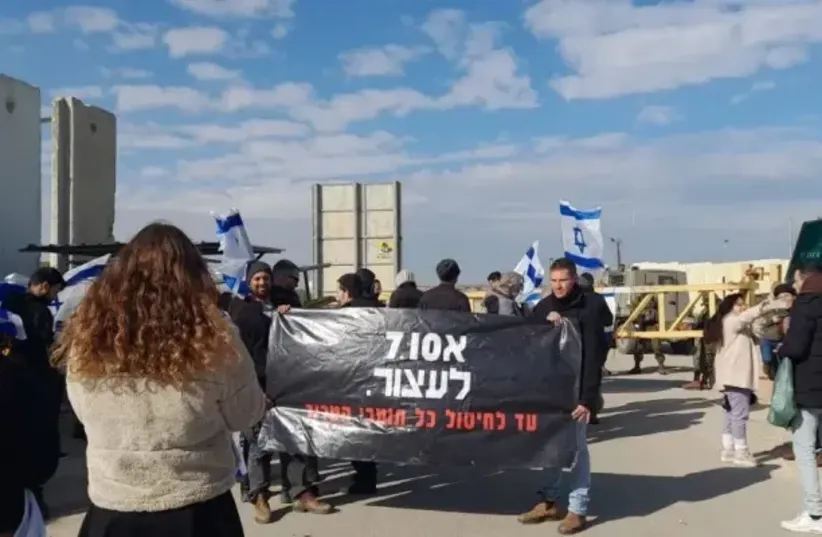
Regardless of the weather, Tzav 9 activists and the families of hostages arrived at the Kerem Shalom crossing on Friday morning and blocked the truck convoys on their way to the Gaza Strip for supplies and aid to Hamas, despite the US demand that the aid to Gaza pass "without interruption."
Tzav 9 stated that "the people of Israel have woken up and are with us wholeheartedly and with all their strength. In the last day, we have been receiving thousands of support messages from all over the country and the world.
"We repeat and emphasize that we are not a political body and do not belong to one camp or another. Our partners are dear people from the right and the left, the residents of the city, the kibbutz and the village, reservists who were released, evacuated citizens, and above all, the families of those who fell in the battles, and in contrast, the families of the hostages who will soon return."
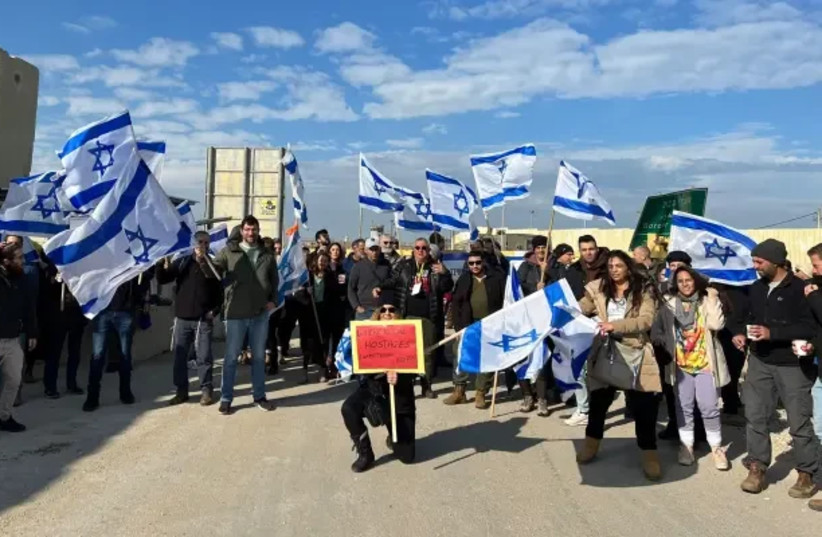
Austin's express demand of Israel
In a conversation held on Thursday between US Defense Minister Lloyd Austin and Defense Minister Yoav Gallant, Austin emphasized the importance of "the transfer of humanitarian aid to Gaza, without interruption."
During their dialogue, Austin reiterated the United States' support for Israel's right to defend itself and his country's commitment to reach a diplomatic solution that would see an end to the tensions on the northern border, alongside the common goal of avoiding a regional escalation.
Go to the full article >>Hungarian FM to 'Post': Israel and Hungary allies in global battle on terror
DIPLOMATIC AFFAIRS: Hungarian Foreign Minister told the Post, "You kill the terrorists in order to avoid them killing peaceful people in the future."

Warning that the Gaza and Ukrainian conflicts could spark a third world war, and arguing that genocide charges against the Jewish state are “nonsense,” Hungarian Foreign Minister Peter Szijjarto is one of Israel’s stalwart friends on the European continent.
The tall politician, who is not afraid to hold controversial opinions and buck the tide of international sentiments, is part of a small number of politicians who fully back Israel in Europe and at the United Nations, including its International Court of Justice at The Hague.
“We stand by Israel, no question,” Szijjarto said as he sat down for an interview with The Jerusalem Post during his solidarity visit to Israel last week.
Much like Prime Minister Benjamin Netanyahu, he has linked the Israel-Hamas war in Gaza with the global battle against terrorism.
As he sat in an armchair in Jerusalem flanked by a flag of Israel and that of his own country, he explained that he is puzzled by the international amnesia regarding how the war began.
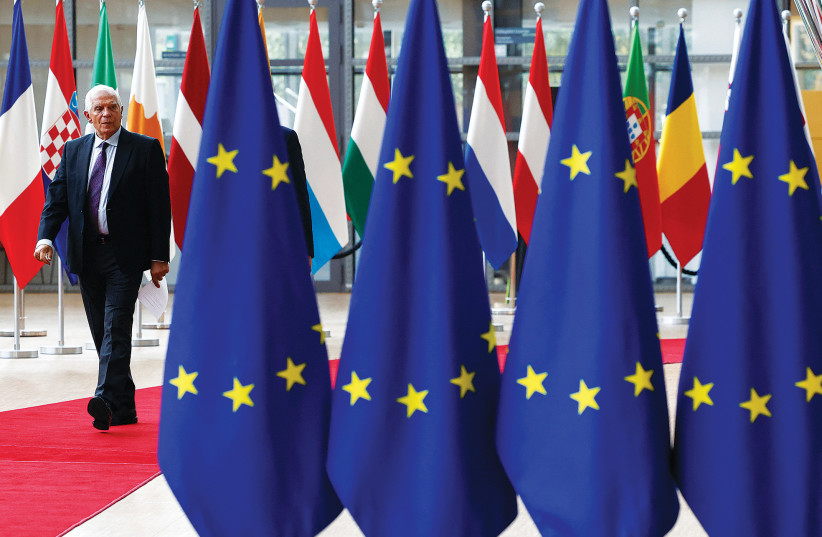
“Unfortunately, my experience is that when the issue of the conflict here is being discussed in the international political arena, somehow [people have] forgotten how it started,” Szijjarto said.
It’s true that nearly four months have passed since the Gaza war started, which “is a long period of time, but it should not be long enough to make all of us forget” the Hamas massacre on October 7, he said. During the terrorist infiltration into southern Israel over 1,200 civilians were killed and another 253 seized as hostages, including dual Israeli-Hungarian citizens.
The Palestinian Authority and its supporters have accused Israel of genocide in light of the high fatality count, which Hamas says is now close to 26,000. Israel has said that over 9,000 of those killed were combatants.
The PA and its supporters often speak of the Gaza war without mentioning October 7 or the threat Hamas poses to Israel, including the rockets that Palestinians have launched against the Jewish state from the enclave for over two decades.
Global war against terror
For Hungary, the IDF military campaign against Hamas is “an anti-terror operation,” Szijjarto said.
What is at stake here is the prevention of “any such kind of heinous terror attacks anywhere in the world, anytime.”
“If this anti-terror operation is successful, it will help the world to be safe from such terror attacks in the future. The success of the anti-terror operation is not only an Israel interest but a global interest,” he said.
“So therefore, we support Israel” and want it to “complete the anti-terror operation successfully, to make it impossible that such an attack takes place anytime anywhere in the world in the future,” he stated.
Hungary, therefore, is among those countries that have objected to South Africa’s petition to the International Court of Justice at The Hague, accusing Israel of genocide. It has asked to be considered a party to the case, so that it can speak up on Israel’s behalf during the main hearing, which has yet to take place.
Szijjarto said that a genocide charge is “nonsense” and that Hungary stands with Israel against any “unbalanced and unfair” international action, and “we will continue to do so. We will continue to speak up, and in order so that the world will come to know what has happened here,” he said.
The events of October 7 were both a “geopolitical situation” and a “human tragedy,” he said.
Hungary has been among those countries directly impacted by the attack. Dual Israeli-Hungarian citizen Ilan Weiss, 56, who was part of Kibbutz Be’eri’s security team, was killed responding to the October 7 attack. Four of Hungary’s dual citizens were among those taken captive that morning. Three were released and one, Omri Miran, 46, a father of two, is still held in Gaza.
In an effort to help secure the release of the hostages, given that Hamas is an Iranian proxy group, Szijjarto has spoken with Iranian Foreign Minister Hossein Amirabdollahian once since October 7, in an effort “to test where they stand and what kind of chances we do have to get them engaged into a solution.”
Szijjarto has also conversed with Qatar, which, along with Egypt and with US support, is leading mediation efforts to secure a deal for the release of the remaining 136 hostages still held in Gaza.
“I think it is not only a political but a moral obligation of the entire international community to make sure that we put enough pressure on Hamas to release all the hostages, unconditionally and immediately,” Szijjarto said. Among the meetings he held while in Israel was one with members of Miran’s family.
The location of Szijjarto’s conversation with the Post in Hungary’s trade office, opened in 2019, was itself a sign of its tight ties to the Jewish state. Hungary was the first European Union country to open an official diplomatic representation in Jerusalem.
Such a step, which signifies recognition of Jerusalem as Israel’s capital, is viewed as diplomatically controversial, given that much of the international community refuses to grant such recognition in advance of a two-state resolution to the conflict. Most embassies are, therefore, located in the Tel Aviv area.
Hungary has pledged in the past to move its embassy, a move that would put it at odds with EU policy on this issue, but it has yet to do so. Such a move, Szijjarto said, is not on the agenda at this time, and he did not provide a timetable for when it would be.
Hungary has also been among those in the EU that have pushed to separate the bloc’s frustration with Israel over the Palestinian conflict from its relationship with the Jewish state. The EU is Israel’s largest trading partner, but it is often diplomatically at odds with the Jewish state over issues such as West Bank settlement contraction, annexation, and, now, the Gaza war.
Szijjarto said that the EU-Israel relationship has always been “colorful,” with many of the bloc’s countries acting in a “biased and unbalanced” way toward Israel. He pointed to the bloc’s decade-long failure to convene the EU-Israel Association Council – which met in 2012 and then again only in 2022, when opposition leader Yair Lapid (Yesh Atid) was prime minister – as an example of that attitude.
For years Hungary was among a small number of countries that argued that this meeting should take place, he said, explaining that the tension now is not new.
“We really want to see Europe standing up and recognizing the right of Israel to protect itself,” he said.
Hungary opposed EU foreign policy chief
Hungary is among those countries that oppose EU foreign policy chief Josep Borrell’s push to impose a resolution to the Israeli-Palestinian conflict, a move that Borrell spoke of Monday at the meeting of EU foreign ministers in Brussels. Hungary’s pro-Israel stance is particularly important at the EU, where policy on Israel requires the support of all of its 27 member states.
Szijjarto told the Post that “it would be great if Europe could contribute to making peace in the region, in case the stakeholders here find it necessary.” We at the EU “cannot impose ourselves on you,” he said.
“The body language of Europe should be to offer our service and let’s see [if] it will be reciprocated,” he said.
Either way, EU-Israel ties should not be contingent on the two-state solution, particularly since Israel is only one of the partners to the conflict, and it cannot resolve it on its own, he explained.
“I think it should not be a precondition because it does not only depend on Israel. So if it does not only depend on Israel, then why would we make it as a precondition for an improved EU Israel relationship?”
He noted that this position does not reflect mainstream political thinking within the EU toward Israel.
“If you tie things to each other, which have not much to do with each other, then you slow down processes,” he stated.
Hungary is also at odds with the bloc when it comes to the Russian-Ukrainian war, now in its second year.
“Europe has made tremendous mistakes” with its handling of that conflict, particularly by globalizing rather than isolating it, he said.
Instead of making steps toward peace, the steps made by the EU “have the danger of escalating the conflict,” Szijjarto said.
Hungary is among the few countries in Europe that have not delivered weapons to Ukraine. It has maintained a relationship with Russia and has called for a ceasefire.
“The longer the war takes, the more people will die,” Szijjarto said.
“The No. 1 duty here is to save the lives of the people [there] and to save the country, Ukraine, from a total collapse,” he said.
There should be a ceasefire, peace talks, and then a peace deal, in that sequence, he said.
With respect to the Gaza war, Hungary holds precisely the opposite approach, but for the same reasons, Szijjarto said.
The focus in both cases is on saving lives, he said.
In Gaza, “you kill the terrorists, in order to avoid them killing peaceful people in the future,” he said.
In both cases, Hungary doesn’t want to see the conflicts escalate, but to avoid that in Gaza, “you to have to win over Hamas.”
“In Ukraine you stop the war immediately. That is how you protect the lives of the people,” he said.
“My understanding is that if either of these two conflicts goes beyond the border of another country, then it will not stop there; it will trigger the involvement of others,” he said.
That situation “can very easily cause a third world war,” Szijjarto said.
In the Middle East, he would like to see the region refocus on a normalization track, without any connection to Palestinian statehood.
Szijjarto explained that he is a strong proponent of the 2020 Abraham Accords, so much so that he was the only foreign minister, aside from the signatories to the deal, who attended its formal signing ceremony in Washington in September of that year.
“We have seen multiple attempts throughout the decades to create peace and normal living circumstances in the region, and all those failed,” he said.
This agreement, under which four Arab countries agreed to normalize ties with Israel, provides the first plan “for long-term peace, stability, and tranquility in the region.”
The region has to return to the Abraham Accords as soon as possible, he stressed.
He noted that he had discussed with Foreign Minister Israel Katz the plan for a regional train system that would link Israel with the Gulf.
It was a proposal first put forward by Katz, which is now also part of a plan to turn Israel into a regional transit hub unveiled by US President Joe Biden last year.
That rail plan “should be constructed in order to make this region more interconnected and more central to global trade,” he said.
Among the regional projects that have interested Hungary has been the EastMed pipeline by which Israel would export natural gas to Europe.
“We are very much interested in [improving] the energy cooperation with Israel,” even though Hungary imports gas and oil from Russia, he said.
When it comes to energy, “you always have to look for diversification. The more diversified the energy, the safer you are,” he said. He noted that he has been interested in energy cooperation with Israel since 2012, and during this visit he spoke about the issue with Energy Minister Eli Cohen.
These types of projects are precisely why Szijjarto said he is such a strong advocate of the Abraham Accords, because they offer practical solutions that improves the lives of residents of the region.
Such projects are not “about theories, ideologies, politics,” but about ways to improve the standard of living, he said. When that happens, the level of “hatred drops,” he said.
“There is nothing that normal people want more than peace. I don’t think October 7 has changed anything in this regard,” he said.
Go to the full article >>El Al to stop flights to South Africa following ICJ genocide case - report
Following South Africa's genocide claim at the ICJ, the number of passengers flying to the country has decreased, rendering that route less profitable.

El Al is expected to stop operating flights to South Africa due to a lack of passengers, originating from South Africa's accusations of genocide against Israel at the International Court of Justice according to a source within the company.
The ICJ is set to publish its ruling regarding South Africa's genocide claim against Israel on Friday at 2 p.m. Israel Time.
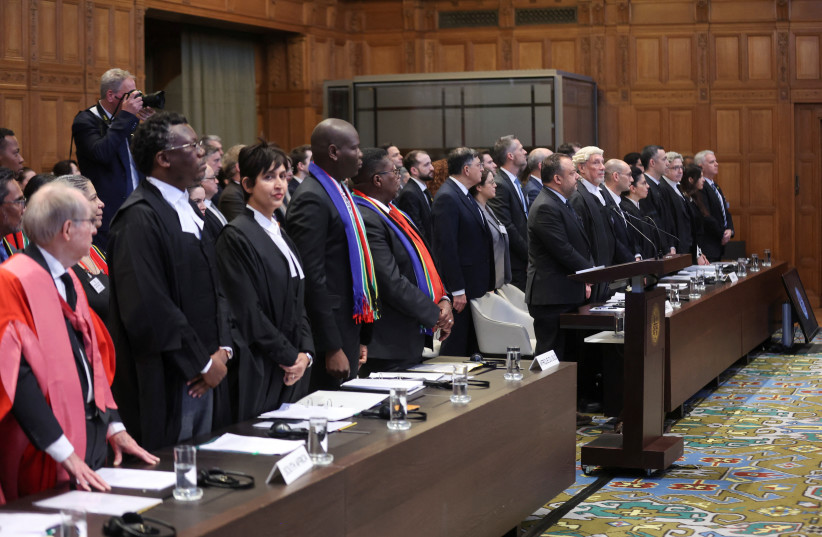
Israelis favor new destinations
A source in El Al told Walla that in view of the security situation and the case in the Hague, Israelis do not want to fly to South Africa, preferring new destinations instead, such as Tokyo, the USA, and Thailand.
"We see it in the lack of orders and drastic cancellations," said the same source, adding that there is a high increase in orders to other long-term destinations, towards which the planes (mostly Boeing 777) will be directed.
El Al has not responded to the report.
Go to the full article >>Israel-Hamas War: What you need to know
- Hamas launched a massive attack on October 7, with thousands of terrorists infiltrating from the Gaza border and taking some 240 hostages into Gaza
- Over 1,200 Israelis and foreign nationals were murdered, including over 350 in the Re'im music festival and hundreds of Israeli civilians across Gaza border communities
- 136 hostages remain in Gaza, IDF says